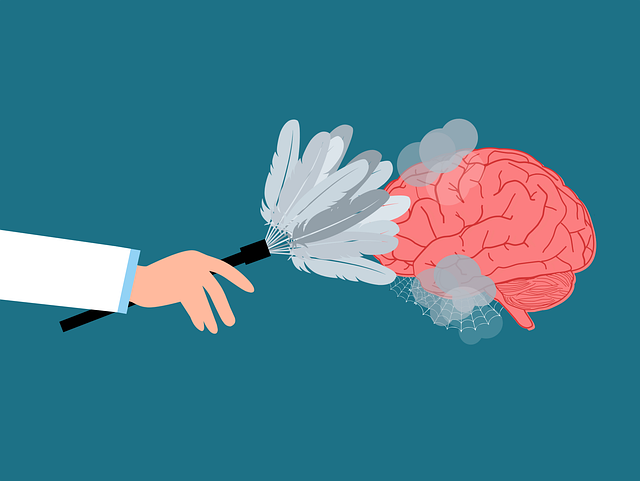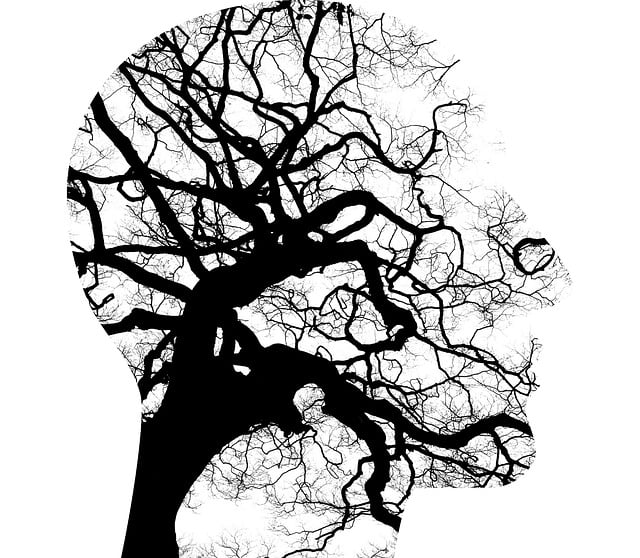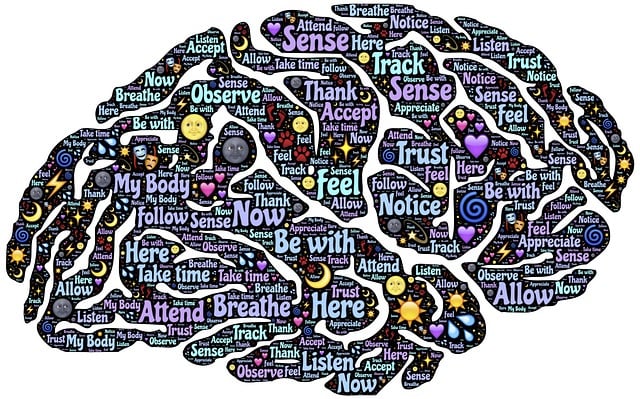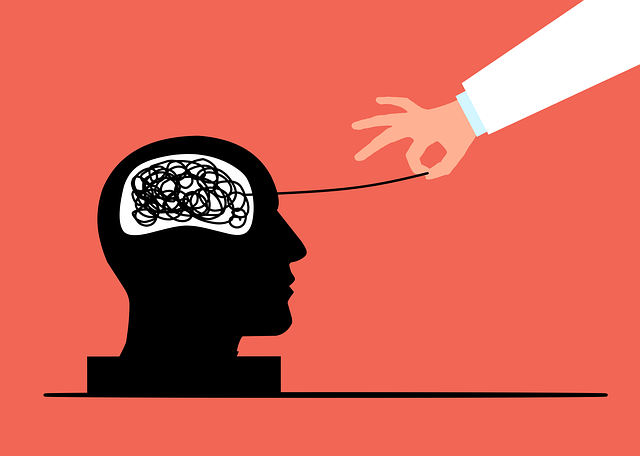Denver Sexual Addiction Therapy (DSAT) emphasizes the universal need for comprehensive mental health understanding and support. Their successful education programs prioritize community engagement, tailored curriculum design, and accessible resources to reduce stigma, empower individuals, and enhance mental health outcomes. Key components include specialized therapy techniques, self-reflection exercises, cultural sensitivity, risk assessment, and evidence-based practices like stress reduction and emotional regulation techniques, ensuring a positive impact on participants' lives.
Mental health education programs play a vital role in fostering well-being. This article explores how to design effective initiatives, highlighting key components and the unique approach taken by Denver Sexual Addiction Therapy (DSAT). DSAT’s success lies in customizing content for diverse audiences, addressing specific mental health issues like sexual addiction. We’ll delve into essential strategies, including implementation techniques and continuous improvement methods, offering a roadmap for creating impactful programs that resonate with various communities.
- Understanding Mental Health Issues and Their Impact
- Key Components of an Effective Education Program
- Customizing Content for Specific Audiences: The Role of Denver Sexual Addiction Therapy
- Implementation Strategies and Continuous Improvement
Understanding Mental Health Issues and Their Impact

Mental health issues are pervasive and impactful, affecting individuals across all demographics. Understanding these conditions is paramount in fostering a supportive environment, especially within communities like Denver Sexual Addiction Therapy, where specialized care is crucial. Mental wellness coaching programs development should prioritize education as a core strategy to reduce stigma and improve access to resources. By integrating knowledge about various mental health disorders, their causes, and effects, individuals can develop empathy and encourage friends, family, or colleagues to seek appropriate help.
Public awareness campaigns development plays a significant role in this process. Educating the public not only broadens perspectives but also empowers people to recognize warning signs and offer support. This proactive approach, coupled with positive thinking principles, can significantly enhance mental health outcomes and overall community resilience.
Key Components of an Effective Education Program

An effective mental health education program should include several key components to ensure it meets its objectives and positively impacts participants’ lives. Firstly, Denver Sexual Addiction Therapy offers a unique perspective by integrating specialized therapy techniques into educational frameworks. This approach ensures that students not only grasp theoretical concepts but also develop practical skills for addressing complex mental health issues.
Additionally, incorporating Mental Wellness Journaling Exercises provides individuals with valuable self-reflection tools. These exercises encourage participants to track their progress, identify triggers, and gain insights into their emotional well-being. Furthermore, Risk Assessment for Mental Health Professionals is crucial for recognizing potential risks within the learning environment and ensuring the safety of all involved. Cultural sensitivity, as emphasized in Cultural Sensitivity in Mental Healthcare Practice, should also be at the core of the program to foster an inclusive and supportive atmosphere, catering to diverse student backgrounds and needs.
Customizing Content for Specific Audiences: The Role of Denver Sexual Addiction Therapy

Mental health education programs must be carefully tailored to resonate with diverse audiences. For instance, Denver Sexual Addiction Therapy (DSAT) highlights the importance of customizing content to address specific needs. Given the sensitive nature of sexual addiction, DSAT incorporates cultural sensitivity in mental healthcare practice, ensuring that educational materials and approaches are inclusive and relevant. This involves tailoring workshops to consider different backgrounds, beliefs, and experiences, fostering an environment where individuals feel comfortable discussing personal challenges related to anxiety relief and conflict resolution techniques.
By integrating these elements, DSAT demonstrates the value of creating programs that go beyond universal content. Recognizing individual differences in mental health journeys allows for more effective learning and support. This tailored approach not only enhances engagement but also promotes sustainable positive changes for those seeking help, ultimately contributing to a more comprehensive and successful mental health education program design.
Implementation Strategies and Continuous Improvement

Implementing a mental health education program requires strategic planning and adaptability. Key success factors include community engagement, tailored curriculum design, and accessible resources that cater to diverse needs. For instance, Denver Sexual Addiction Therapy can collaborate with local schools, workplaces, and community centers to deliver programs that resonate with specific demographics. This could involve incorporating interactive workshops, group discussions, and digital resources featuring real-life stories from within the community.
Continuous improvement is vital through ongoing evaluation and feedback mechanisms. Measuring program effectiveness using established mental health assessment tools can help identify areas for enhancement. By incorporating evidence-based practices like Stress Reduction Methods and Emotional Regulation techniques, while also offering Social Skills Training, programs can become more impactful and inclusive. Regular reviews ensure the curriculum remains relevant, ensuring that participants receive the best possible support for their mental well-being.
Mental health education programs, enriched by tailored content like that offered by Denver Sexual Addiction Therapy, can significantly improve awareness and reduce stigma. By incorporating key components discussed, including comprehensive curriculum, engaging delivery methods, and continuous evaluation, we can create impactful initiatives that cater to diverse audiences. This approach ensures not only immediate learning but also fosters long-term mental wellness in our communities.













